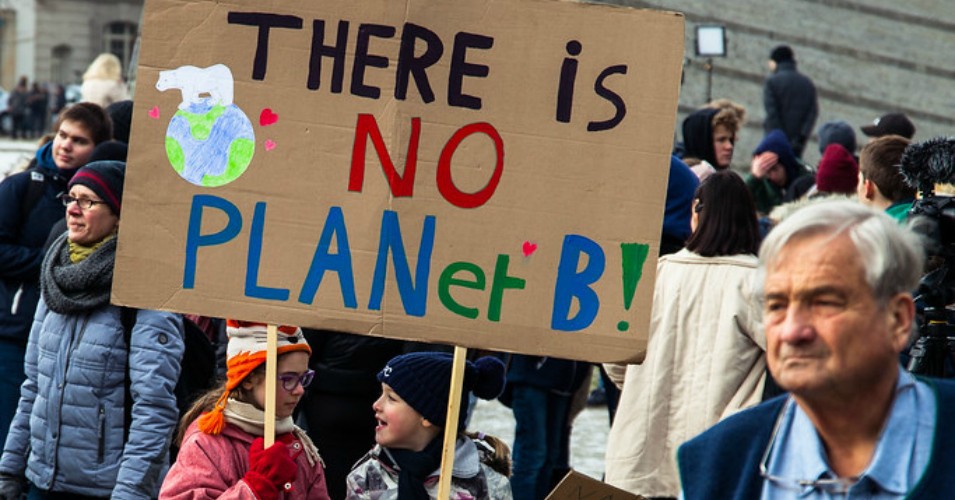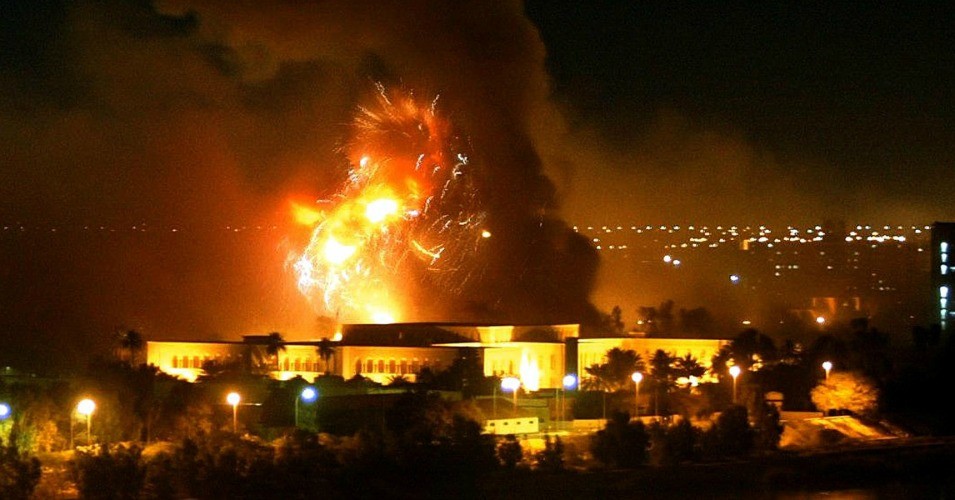Regular readers of Countercurrents may recall a recent article I wrote entitled, “Japan’s Concealed Past, Condemned Future” ( https://countercurrents.org/2022/04/japans-concealed-past-condemned-future/).
In that article I argued that because the Japanese people had been, in the postwar era, deliberately deceived into believing that the military, not Emperor Hirohito, had been responsible for the war, they were likely to be condemned to go to war with China once again, this time allied with the US. I concluded the article with the provocative statement, “like the Japanese, [US citizens] have had the true nature of their own government’s wartime imperialism concealed from them.”
In light of the literally thousands of books, films, documentaries, etc. that have been written about WW II, it is nearly impossible to believe that the American people could have the true nature of this conflict concealed from them for some 75 years. After all, while there may be some doubt about the righteousness of America’s post-WW II wars in, among other places, Korea, Vietnam, and especially Iraq, WW II is widely regarded in the US as having been America’s last “good war,” where the differences between ‘good’ and ‘evil’ were unambiguous and indisputable. In other words, the ‘good’, i.e. the Allies, were really ‘good’ and the Axis powers were really ‘evil’.
There is no need to debate the evil nature of the Axis powers, for the Holocaust, Rape of Nanking, or Bataan Death March, among many other atrocities, makes this all too clear. Nevertheless, were the Allies really the ‘knights in shining armor’ they are typically portrayed as having been? Raised to be an American patriot, I would like to answer this question in the affirmative. However, as an honest historian I must admit this was not the case. Why not?
I would first note that I’ll restrict the discussion to the Pacific theatre of WW II due, first of all, to space restrictions, and, secondly, to the fact that the origins of the war in the Pacific are less well-known even though the Japanese attack on Pearl Harbor has been burned into the collective consciousness of all Americans.
With this in mind, let us recall that the road to war between the US and Japan can be traced back at least as far as the Japanese military’s takeover of Manchuria, beginning with the Manchurian Incident of September 1931 and accelerating with the establishment of the Japanese puppet state of Manchukuo in February 1932. The Japanese attack on the remainder of China, beginning in July 1937, led to the Rape of Nanking in December of that year, and brought war with the US ever closer. That said, the proximate cause of the war was the stationing of Japanese troops in Vietnam in September 1940. To protest this move, the US froze all Japanese assets in America and initiated a total embargo on oil exports to Japan. As Japan had no oil of its own, Japan was dependent on the US for 88% of its oil imports. Without oil, the Japanese war machine, let alone its civilian economy, would grind to a halt and its navy, useless.
The US oil embargo, more than any other US action, led to the Japanese attack on Pearl Harbor, for the only alternate, major source of oil in Asia was in the Dutch East Indies. Acting in concert with the US, the Dutch, too, froze Japanese assets and refused to sell oil to Japan. This led Japan to attack the Dutch East Indies shortly after it attacked Pearl Harbor, for Japan realized that they would be unable to successfully transport Dutch oil back to Japan by ship without first destroying the US Pacific fleet that was poised to block such shipments.
Of course, the argument can be made it was Japan that precipitated the US oil embargo by sending its troops to Vietnam, thereby committing military aggression against another country. However, although Japan initially employed limited military force, it was able to obtain the French government’s approval to station its troops in Vietnam. The approval, however, had been granted by the French Vichy government which was pro-Nazi in orientation. Nevertheless, it was then the legal government of Vietnam, also recognized as such by the US. Hence the stationing of Japanese troops in Vietnam cannot be considered an invasion of that country. But why was Vietnam under French control in the first place? The answer is simple, for from 1887 onwards Vietnam, like the rest of Indochina, was a French colony.
This raises the question of why the US so strongly objected to Japan’s stationing of troops in Vietnam when it had never objected to France’s colonization of all of Indochina, including Vietnam, Cambodia and Laos? Or for that matter, why had the US never objected to Britain’s colonization of India, Nepal, Bhutan, Burma, Ceylon, Malaya, North Borneo, Brunei, Singapore, or Hong Kong? Or Holland’s colonization of the oil-rich Dutch East Indies (today’s Indonesia)? Or Portugal’s colonization of Macao?
On the one hand, the US had once fought a bitter war seeking independence from the British and knew very well just how precious freedom and the right of self-determination were. Nevertheless, the US failed to oppose even a single Western country’s colonization of large chunks of Asia. Why?
Once again, the answer is simple, for by the time of WW II, the US was itself a colonial power in Asia due to its military invasion and takeover of the Philippines in 1898. Given this, how could the US oppose other Western nations that had also employed military force to secure their Asian colonies when it had done the same itself?
With regard to the Philippines, it should be remembered that the US military’s invasion of that country in 1898 was defended in the US Senate by Senator Albert Beveridge of Indiana as follows:
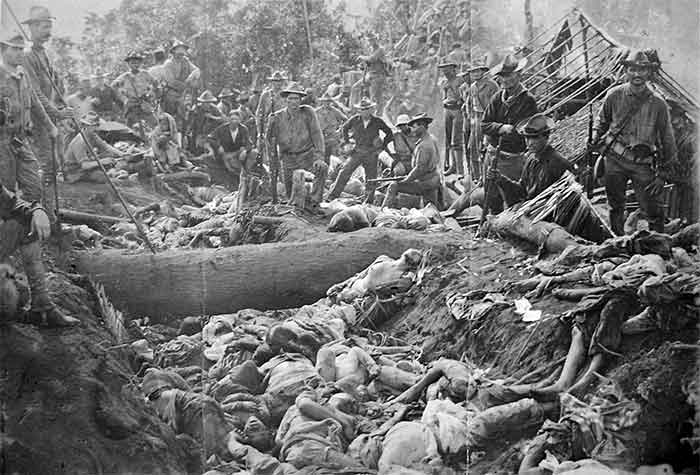
“God has not been preparing the English-speaking and Teutonic peoples for a thousand years for nothing but vain and idle self-admiration. No! He has made the US the master organizers of the world to establish system where chaos reigns. . . . He has made us adepts in government that we may administer government among savages and senile peoples.”
For his part, President William McKinley was a bit milder in voicing his support for American imperialism. Perhaps this was because he was addressing a group of Christian clergymen who had been invited to the Whitehouse in 1898:
“I walked the floor of the White House night after night until midnight, and I am not ashamed to tell you, gentlemen, that I went down on my knees and prayed to Almighty God for light and guidance more than one night. And one night late it came to me this way – I don’t know how it was, but it came . . . that there was nothing left for the US to do but to take them all, and to educate the Filipinos, and uplift them and civilize and Christianize them, and by God’s grace do the very best we could by them, as our fellow-men for whom Christ also died.”
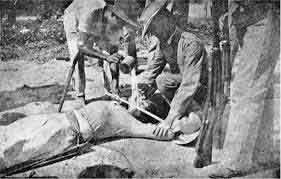
What Senator Beveridge and President McKinley shared in common was their conviction that they were doing God’s work in their subjugation of the Filipinos. Note that the Spanish had also justified their earlier colonization of the Philippines in 1521 by claiming it was done to Christianize the natives, though by this they meant converting them to Roman Catholicism. McKinley, on the other hand, was a Methodist, so his claim that he was also going to Christianize the Filipinos meant he was going to convert them once again, this time into Protestants.
Concretely, how did the US go about “uplifting, civilizing and Christianizing” the inhabitants of the Philippines? First of all, the US attacked all of the Filipino patriots who dared seek the freedom and independence of their country. The US State Department estimated that the ensuing Filipino-American war “resulted in the death of over 4,200 American and over 20,000 Filipino combatants”, and, further, that “as many as 200,000 Filipino civilians died from violence, famine, and disease.”
As for the way the US fought the war, in November 1901, the Manila correspondent of the Philadelphia Ledger wrote: “The present war is no bloodless, comic opera engagement; our men have been relentless, have killed to exterminate men, women, children, prisoners and captives, active insurgents and suspected people from lads of ten up, the idea prevailing that the Filipino as such was little better than a dog.” If identification of the Filipinos as little better than dogs seems extreme, it must be remembered that a number of the US soldiers in the Philippines were veterans of the near genocidal, final battles of the Indian wars in the US. In their eyes, the Filipinos were yet another group of bloodthirsty, savage “injuns” as they called them. With war conduct like this, on what basis could the US have criticized, let alone opposed, the similar actions of its fellow Western imperialists?
What these and many other examples teach us is that, while Japanese imperialism was both real and brutal, it more than met its match in the imperialism practiced by the US and other Western imperialist powers in Asia, and around the world for that matter. If further proof be needed, one need only look at the aftermath of WW II following Japan’s surrender in 1945. In each instance, whether in Vietnam, Indonesia, India, etc. the US voiced no objection to its fellow Western imperialists seeking to reclaim their former colonies. This is despite the fact that, as the only country in possession of the atomic bomb at war’s end, no other Western colonial power, already weakened by war, could have dared disobey a direct American order to set its former colonies free. But such an order never came.
It should now be crystal clear that the war between the US, aided by its Western colonial allies, and Japan was not a war between the “good guys” and the “bad guys” but instead was a conflict between imperialist countries on all sides, thus an inter-imperialist conflict. In other words, Japan’s unforgiveable crime was that it attempted to forcefully ‘reshuffle the deck’, meaning Japan sought to acquire those Asian countries that the Western imperialists had already divided among themselves. While Western or ‘white’ imperialism was acceptable to the US, Japanese or ‘yellow’ imperialism was not, least of all if it meant losing something that was already ‘theirs’.
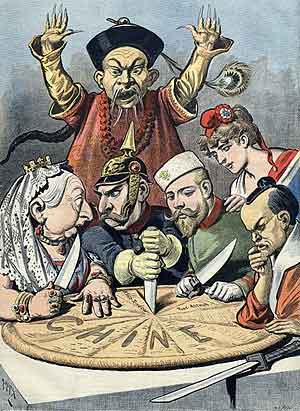
While it can be argued that Western imperialism was, on the whole, not as brutal as its Japanese counterpart, that is little solace to the many tens of thousands who died at the hands of both. Nor should we forget the tens, even hundreds, of thousands of mostly young men from the warring parties who fought and died in their country’s imperialist war, in the false belief they were fighting for the freedom and independence of their homelands and the peoples of the world.
Today, as war between the US, now allied with Japan, and China looms ever closer over Taiwan’s future, the question must be asked, are the people of both the US and Japan condemned to repeat a past the true nature of which neither of them has fully understood?
Brian Victoria, Ph.D., Senior Research Fellow, Oxford Centre for Buddhist Studies

